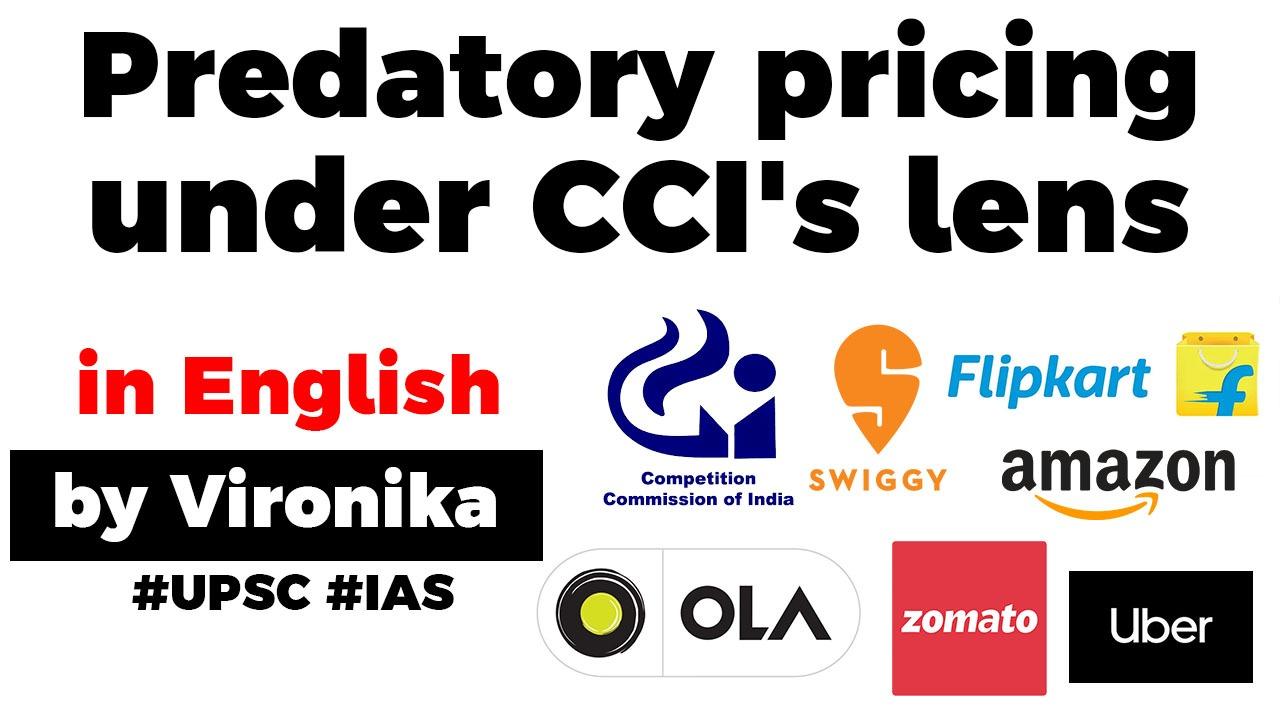Table of Contents
Predatory pricing. Online versus offline
- Any intervention to “correct” pricing essentially involves placing a higher weightage on the assumed losses of competitors/producers than on the consumer’s apparent gains.

- The online marketplace or the platform/intermediation service market is now largely characterised by duopolies in most segments
- Some niche players do exist in these segments, but by and large, the market has been carved up by large players.
- Several of these companies have come under the scrutiny of the Competition Commission of India (CCI).
- Do such market structures restrict online competition?
- Are the players engaging in predatory pricing?
- If so, is it driving out both online and offline competition and does this adversely impact consumer welfare?
- Is there a need for policy intervention, and, if so, what should be the underlying framework?
- In theory, the online market structure should facilitate greater competition given the lower barriers to entry. But this may not be the case.Take-over: Most other firms in the segments mentioned above have either been taken over or have folded up.
- Given the network effects, which are common in digital spaces, it becomes difficult for new players to enter these spaces, and gain market share as there isn’t much space for many such networks.
- Capital intensive market: Another possible explanation is that, contrary to perception, the online space is highly capital intensive.
- Many allege that these two-sided online platforms engage in predatory pricing or below-cost pricing either by funding it themselves (deep pockets) or by squeezing producers.This drives out the competition — both online as well as offline.
- While consumers do benefit in the short run, once the competition is driven out, the platform starts raising prices to recoup previous losses.
- The dynamics of online pricing (prices change over time), their unique cost structures — in such two-sided platforms, prices/costs on both sides should be seen in conjunction — as well as the impact of economies of scale and organisational efficiency in lowering costs, all need to be factored in.
- It is quite likely that once the competition is eliminated and the platform starts to raise prices, new players will enter the market, attracted by higher prices.
- Driving out competitors may not be the same as driving out the competition — though the extent to which new firms are able to enter the market will depend on the degree to which barriers to entry exist.
- There is also an argument for closer examination of such market structures because of the possibility of collusion.
- Customers moving towards cheaper options: In most such markets, as the consumer has little to differentiate between the two platforms, it is the price that sets them apart.
- The dominant position is not always linked with predatory pricing: As the experience of the telecom sector shows, a dominant position may not be a prerequisite for predatory pricing.
- Accepting this argument would imply that if regulatory intervention is required to check predatory pricing, it could kick in before market power or dominance is established.
- U.S. government’s antitrust enforcement agencies, the Federal Trade Commission and the Department of Justice are carrying out Antitrust Investigations against Amazon and Google respectively.
- In 2018, The Competition Commission of India (CCI) has also imposed Rs.136 crore fine on Google for unfair business practices and for infringing antitrust conduct in India.
- Set of guidelines instead of the fixed framework
- Safeguarding competition not competitors
Latest Burning Issues | Free PDF






















 WhatsApp
WhatsApp